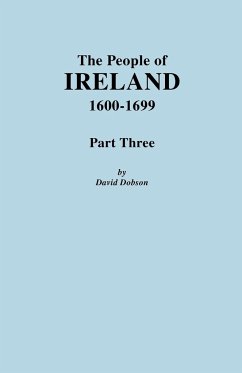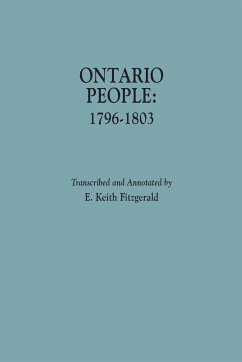
Ontario People
1796-1803
Versandkostenfrei!
Versandfertig in 1-2 Wochen
30,99 €
inkl. MwSt.

PAYBACK Punkte
15 °P sammeln!
After the American Revolution, several thousand families came to settle in the western part of Quebec, later called Upper Canada, then Canada West and today Ontario. These settlers were former members of American Loyalist regiments, discharged British and German servicemen, and some civilians and refugees. They were offered grants of 200 acres of land on condition that they take an oath of allegiance and remain loyal to the British regime. All settlers received certificates showing the location of the lots on which they were to clear land and build houses. First, however, it was necessary to e...
After the American Revolution, several thousand families came to settle in the western part of Quebec, later called Upper Canada, then Canada West and today Ontario. These settlers were former members of American Loyalist regiments, discharged British and German servicemen, and some civilians and refugees. They were offered grants of 200 acres of land on condition that they take an oath of allegiance and remain loyal to the British regime. All settlers received certificates showing the location of the lots on which they were to clear land and build houses. First, however, it was necessary to establish who had the right to obtain title deeds, and in 1796 a proclamation was issued that required Loyalists and others to surrender their certificates in exchange for title deeds and to make a statement under oath in the district court as to their right to hold them. Subsequently, thousands of settlers appeared before the magistrates in district courts throughout Upper Canada. The magistrates provided additional information in the records, which have been preserved in the National Archives of Canada and are usually called the District Loyalist Rolls of 1796. These rolls have been carefully transcribed for the first time by Dr. E. Keith Fitzgerald, who has supplemented the 4,000 entries with further data from his own research.





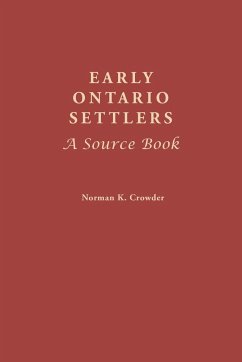
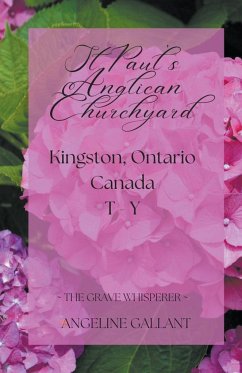
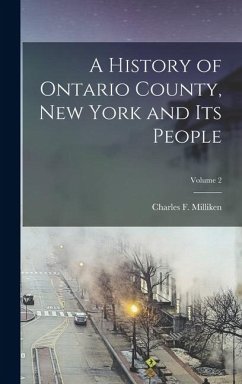
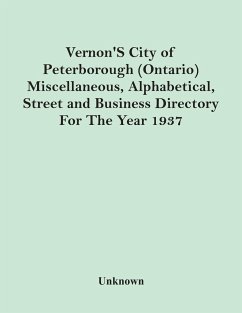
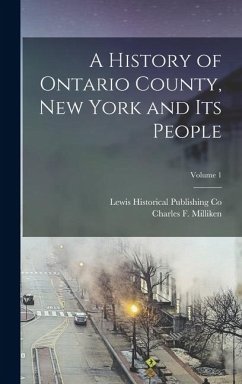
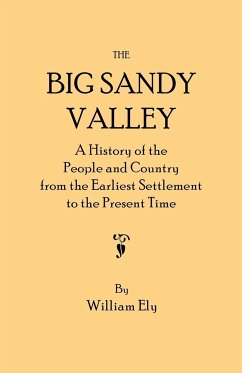
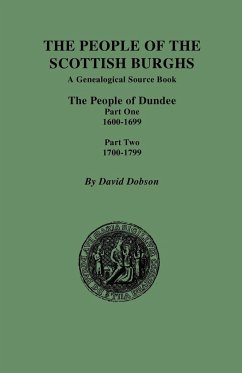
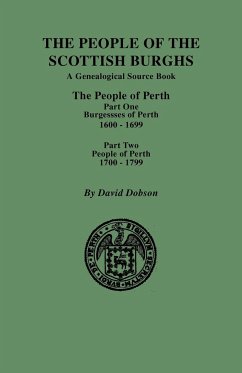
![Roster of the People of Revolutionary Monmouth County [New Jersey] Cover Roster of the People of Revolutionary Monmouth County [New Jersey]](https://bilder.buecher.de/produkte/27/27006/27006587n.jpg)
